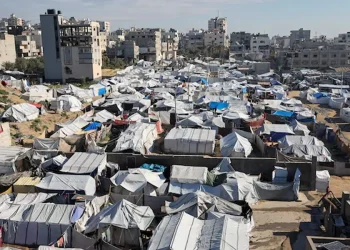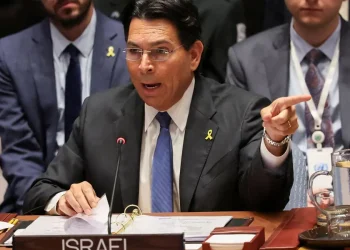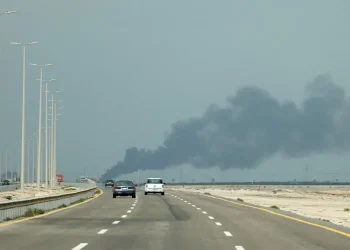The Israeli military struck the West Bank city of Jenin, authorities said Friday, the third day of heavy fighting in the Palestinian territory. The Israeli military says it “struck a terrorist cell.”
Such airstrikes, while common over the months-long Israel-Hamas war in the Gaza Strip, have been rare in the West Bank in the time since. Israel says the raids across the northern West Bank — which have killed at least 19 people, mostly militants, since late Tuesday — are aimed at preventing attacks. The Palestinians see them as a widening of the war in Gaza and an effort to perpetuate Israel’s decades-long military rule over the territory.
The Palestinian Health Ministry says at least 663 Palestinians have been killed in the West Bank since the start of the war.
In the Gaza Strip, where the Health Ministry says more than 40,000 Palestinians have been killed since the war began Oct. 7 with Hamas’ attack on Israel, an Israeli missile hit a convoy carrying medical supplies and fuel to an Emirati hospital in the Gaza Strip, killing several people from a local transportation company. Israel claimed without evidence that it opened fire after gunmen seized the convoy.
Here’s the latest:
JERUSALEM — Israeli forces killed three Palestinians in the north of the occupied West Bank on Friday, the third day of a large-scale operation in the territory, Palestinian health officials said.
The Israeli military said its troops identified and killed a militant named Waseem Hazem while he was driving. When two others in the car — whom the military also identified as militants — attempted to flee, troops killed both in an airstrike.
The Palestinian Health Ministry said the three were killed in Zababdeh, a town south of Jenin city, but did not immediately confirm their identities.
Israeli forces have killed at least 19 Palestinians since the start of the operation early Wednesday, which they say is geared to root out militancy in the restive territory and prevent attacks on Israeli citizens. Hamas has claimed at least 10 of the dead as their fighters.
Since the start of the Israel-Hamas war, at least 663 Palestinians have been killed by Israeli fire in the West Bank, Palestinian health officials say, mostly in Israeli raids into Palestinian cities and towns. Attacks on Israelis in the territory have also risen.
DEIR AL-BALAH, Gaza — Mourners at Al-Aqsa Hospital the Gaza Strip gathered early Friday to hold a funeral for several members of two different families killed Thursday night after an Israeli airstrike hit their house.
A video filmed by media shows a man holding his dead child wrapped in a bloodied white shroud. Another man is seen holding an infant who was born dead that night.
More than 14,000 children have been killed since the Israel-Hamas war began on Oct. 7, according to Gaza health officials.
Several people gathered at the hospital complex performed a funeral prayer before the bodies were taken for burial.
DUBAI, United Arab Emirates — An Israeli missile hit a convoy carrying medical supplies and fuel to an Emirati hospital in the Gaza Strip, killing several people from a local transportation company, the American Near East Refugee Aid group said Friday.
Israel claimed without evidence that it opened fire after gunmen seized the convoy.
The strike Thursday hit the first car in the convoy on the Salah al-Din Road in the Gaza Strip, killing several people employed by a transportation company that the aid group was using to bring supplies to the Emirates Red Crescent Hospital in Rafah, said Sandra Rasheed, Anera’s director for the Palestinian territories.
The convoy, which was coordinated by Anera and approved by Israeli authorities, included an Anera employee who was unharmed, Rasheed said in a statement. “Our understanding is that the remaining vehicles in the convoy were able to continue and successfully deliver the aid to the hospital.”
The Israeli military did not immediately respond to a request for comment Friday from media. However, Israeli military spokesperson Lt. Col. Avichay Adraee posted to the social platform X that “gunmen seized a car at the head of the convoy (a jeep) and began driving.”
He wrote that the military determined only one vehicle was seized before acting, and added, “The presence of armed men inside a humanitarian convoy in an uncoordinated manner makes it difficult to secure the convoys and their staff and harms the humanitarian effort.”









 American Dollar Exchange Rate
American Dollar Exchange Rate